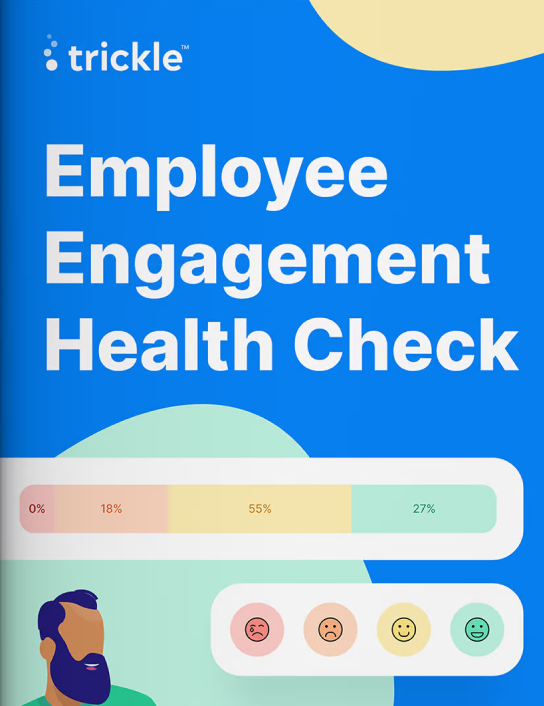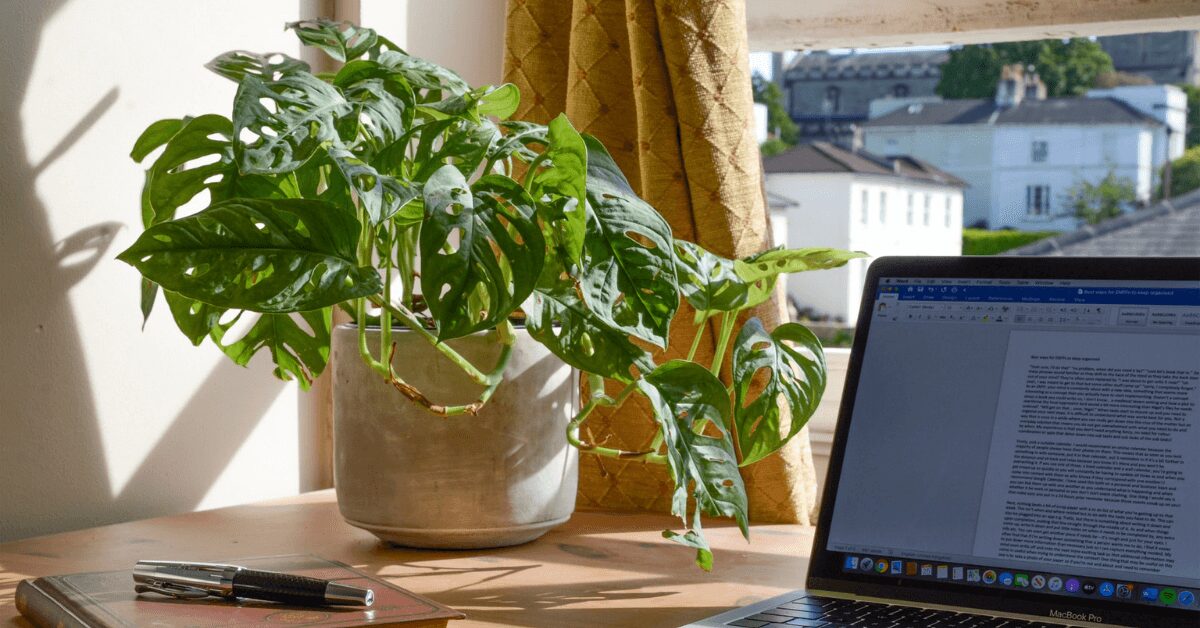How well does your company engage its employees?
Take your health check and find out.


Due to the ongoing Coronavirus pandemic, it seems that offices across the country are destined to remain empty for the foreseeable future.
While some people may be delighted to continue working from home, others are less enthusiastic or downright distressed at the prospect.
But, no matter our sentiment, for the sake of our wellbeing and work performance, it’s important we try to make the best of a challenging situation.
To help make working from home happier, we’ve put together five easy things you can do to boost your mood, wellbeing and productivity.
Even for those of you who have taken to remote working like a duck to water, there’s always scope for improvement. You may be surprised at how some of our suggestions can vastly improve your workday.
Click here to download the infographic and share with your team.
Air quality has a huge impact on how we feel and function, a good dose of fresh air can boost our alertness, decision-making ability, mood and productivity.
Adversely, poor ventilation and higher concentration of indoor carbon dioxide (CO2) were found to negatively affect work performance and were linked to acute symptoms such as headaches.[1]
If you’ve ever been on a long-haul flight you will know that stale air is drying, can irritate your sinuses and throat, and generally leave you feeling dehydrated.
Combined with central heating, stagnant air can cause brain fog and lethargy.
So, it’s important that you ensure your room is properly ventilated and that the air is regularly circulated with fresh air from outside.
At the start of each day, or at midday when you need a little “pick me up” or to refocus, why not crack open the window for a few minutes before you reach for a shot of espresso.
We’ve already covered the importance of fresh air, so in addition to airing your room, we suggest you also pick up a plant to oxygenate your room and improve your air quality.
Research by NASA scientists in the 1980s, found that plants are highly adept at cleaning the air by removing harmful chemicals, such as benzene and formaldehyde.
Studies have shown that indoor plants can help reduce CO2 by about 10% in air-conditioned offices, and by about 25% in offices without air conditioning.[2]
Another study found that people who worked in offices with leafy green plants concentrated better and were 15% more productive than those who did not have any greenery.[3]
The same study also found that when plants were introduced into offices, employee memory retention and other basic cognitive functions improved substantially.
It’s believed that the physical presence of a plant in your space can help your mind take much needed micro-breaks, by briefly commanding your attention without over-stimulating your brain, which can help increase your productivity.
House plants have also been shown to reduce stress, anxiety and depression. A study in the Journal of Physiological found that indoor gardening, the active interaction with indoor plants, can calm us by lowering our stress response.[4]
When it comes to choosing the right plant, you may want to consider picking a plant with a relaxing aroma such as lavender or one that produces herbs or other edibles such as chillies.
However, if you aren’t a green thumb then it might be best to stick to more hardy plants, such as;
Like oxygen, water is essential to us humans, so it’s vital for our wellbeing and productivity we get enough fluids throughout the day.
Mild symptoms of dehydration can include sleepiness, headaches, light-headedness, dizziness, low-mood, faux hunger pangs and poor concentration.
Staying hydrated may seem obvious, but many of us fall often short of our daily recommended intake of fluids. When you’re deeply engrossed in a project, have a tight-deadline or just lose track of time, it can be easy to become dehydrated.
Heavy workloads, stress and exhaustion can also lead to a high consumption of coffee, which is a diuretic and can hasten dehydration.
Experts recommend that people sip sparkling or still water slowly throughout the day to ensure they stay properly hydrated.
For those who struggle to remember to drink up, there are apps and fun water bottles that will prompt you to meet your liquid quota.
A fruit infuser carafe or a new special glass can also make drinking a bit more fun.
If you don’t want another app in your life, then you can keep a simple tally on a post-it note of how much you are drinking each day. Doing this can give you a sense of accomplishment as you accumulate tallies throughout the day.
While the benefits may not be instant, if you stick with it your body and mind will thank you and you may be amazed at how much better you feel just for making this one simple change.
Wherever your office space is set up, there will always be some degree of noise.
Unless you’re fortunate enough to live in some idyllic remote location, where you only have the sound of nature surrounding you, it’s likely the noises distracting you will be from children, neighbours, pets or street sounds.
These types of noise can seriously disrupt a train of thought and make it challenging to stay focused, and the resulting stress from being derailed from a project can then worsen negative feelings.
A 2015 study found that reducing noise in the workplace increased people’s ability to focus by almost 50% and decreased stress levels by almost 30%.[5]
While you cannot eliminate the noise, you can limit it by closing doors and adding decor that absorbs sound, such as pillows or a rug.
If you cannot escape the noise or modify your space sufficiently, then it might be looking for a good pair of noise cancelling headphones or ear plugs.
Poor productivity is one of the chief complaints people have about remote working. Without the daily structure of the office workday people can often feel adrift.
Invented in the late 80s by Francesco Cirillo, the Pomodoro Technique is a time-management system designed to break down the workday into a series of intervals, typically 25 minutes in length, separated by 5 or 10 minute breaks.
Work intervals can vary in length, but they should not exceed the natural concentration cycle, which is limited to a 90 minute period.
According to Cirillo, his technique teaches you to work with time, instead of struggling against it.
Using his method, you can reduce the impact of internal and external interruptions while mapping out your day. It’s also very usual for tackling large projects and managing heavy workloads.
Originally, Cirillo used a tomato shaped kitchen timer to track his work sessions. He believes the physical act of winding the clock helps to confirm the person’s commitment to start the task, while the ticking of the clock boosts their resolve to complete the task, and the final bell is a strong prompt for them to stop.
But, if you do not have a timer or prefer a more modern approach there are a plethora of apps and sites that provide this service for free. One that the team at Trickle favour is https://pomofocus.io/.
Each of these tried and tested tips was recommended by one of the Trickle team and we hope they help make remote working happier and easier for you!
If you enjoyed this article you might also like our tips on How to Beat the January Blues and How to Manage Inclusion in Isolation.
[1] https://www.ncbi.nlm.nih.gov/pmc/articles/PMC3548274/
[2] https://www.uts.edu.au/about/faculty-science/what-we-do/our-research-areas/plants-and-indoor-environmental-quality-group
[3] https://pubmed.ncbi.nlm.nih.gov/25068481/
[4] https://www.ncbi.nlm.nih.gov/pmc/articles/PMC4419447/
[5] https://axiomworkplaces.com.au/our-insight/sound-effects-the-impact-of-noise-on-employee-productivity/#:~:text=An%20employee%20productivity%20study%20by,levels%20by%20almost%2030%20percent.